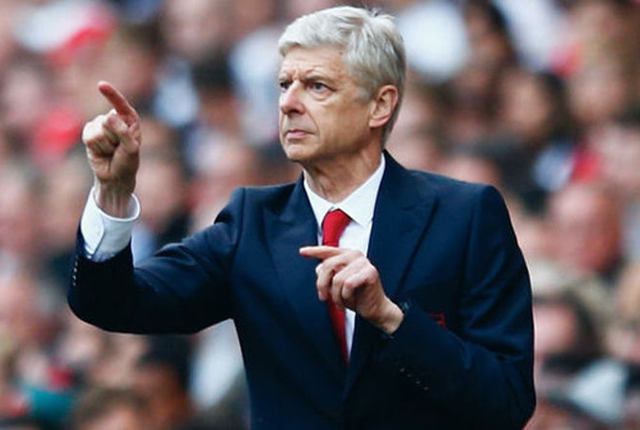Wenger: The real game changer

LONDON. – On Wednesday night, after Arsenal’s impressive 2-0 win over Basel in the Champions League soccer, Arsene Wenger said something odd.
“I like history but not especially my history. I’m more interested in what is in front of me and when you get older what is in front of you gets shorter so it is even more important.”
Philosophical, rational, self-deprecating – only Wenger would come out with such a line. But such a statement encapsulates the spirit and mentality which the Frenchman has stayed so true to throughout his time as Arsenal manager.
To keep on pushing forward and breaking new boundaries has remained Wenger’s raison d’etre for nearly 20 years now – all the while remaining respectably, though some would say frustratingly, grounded. This sort of mentality has borne numerous fruits, not just for Arsenal but for the English sport as a whole.
But when Arsene Wenger was officially unveiled 20 years ago this Saturday as the Arsenal manager, the decision was greeted with a general sense of bemusement. “Arsene who?” was the question that ran on the front of the Evening Standard as fans and neutrals alike reacted with perplexity to the appointment.
Jon Henderson of The Observer went one better, remarking: “Football’s experience presents a contrary proposition – that foreign coaches are the problem. Those few who have tried to transform the manly virtues of our national game into something more aesthetic have tended to disappear up their own intricacies while their teams have disappeared down the table.”
But Wenger has done anything but disappear. Contrary to Henderson’s predictions, the Frenchman has indeed transformed the previously “manly” qualities of the English game into “something more aesthetic”.
Since his appointment 20 years ago, Wenger has slowly set about building a legacy at the club which, as clichéd as it sounds, has revolutionised the game.
From dietary restrictions to training sessions, Wenger turned the English approach to football on its head and introduced a degree of professionalism that has now become second nature to the way of the sport.
Speaking nine years ago, Wenger recalled: “I remember my first day at Arsenal when we were travelling to Blackburn and the players were at the back of the bus chanting, ‘We want our Mars Bars!’ They used to eat them before the game but I took them away.
“Food is like kerosene. If you put the wrong one in your car, it’s not as quick as it should be.”
This attention to detail has embodied Wenger’s footballing philosophy. From plyometrics and osteopathy to dieticians and psychologists, the former Monaco manager introduced a number of techniques that sought to maximise his team’s performance on the pitch. Alcohol on days off was phased out, too, while all junk food was banned. Such practices have now become commonplace and, in many ways, have helped make the game what it is today.
But Wenger didn’t just stop with the Mars Bars. His recruitment and spending policy has been widely lauded. Faced with millions of pounds of debt following the club’s stadium move in 2006 (which Wenger himself deemed “vital”), the Frenchman successfully managed to navigate a transfer market subject to wild inflation and ever-increasing player fees.
A survey in 2007 found that Wenger was the only Premier League manager to have made a profit on transfers, and between 2004 and 2009, he made an average profit of £4,4 million per season on transfers, far more than any other club in the league.
For many, such achievements matter little when the manager’s lack of silverware in the second half of his tenure is taken into account. And understandably so. His side have failed to emulate the historic success of the 2003/04 “Invincibles”, picking up just five titles since that memorable year – none of which have included the Premier League. Arsenal famously went nine years without a trophy between 2005 and 2014.
On more than one occasion, Wenger has teetered dangerously close to the edge. Dissatisfaction and discontent has permeated throughout the Emirates in recent seasons as Wenger’s side floundered in the final stages of each Premier League campaign.
A top fourth finish has not been enough for some who have longed for a return to the glory days of old. In certain corners of the Arsenal faithful, Wenger has overstayed his welcome. – The Independent.










Comments